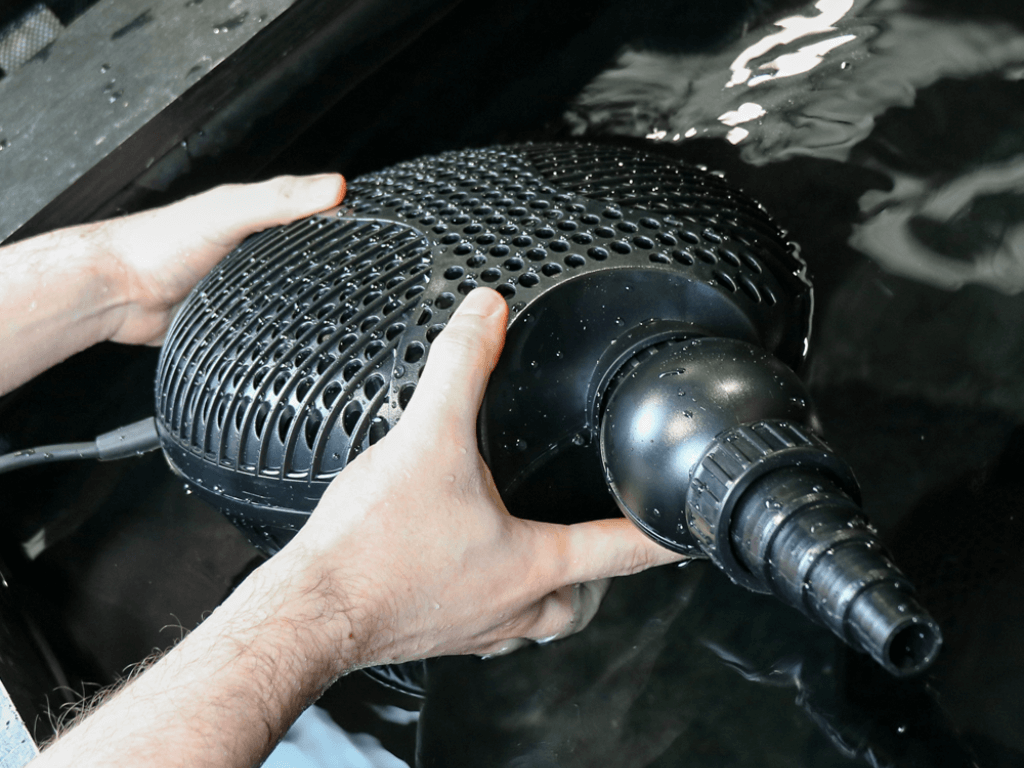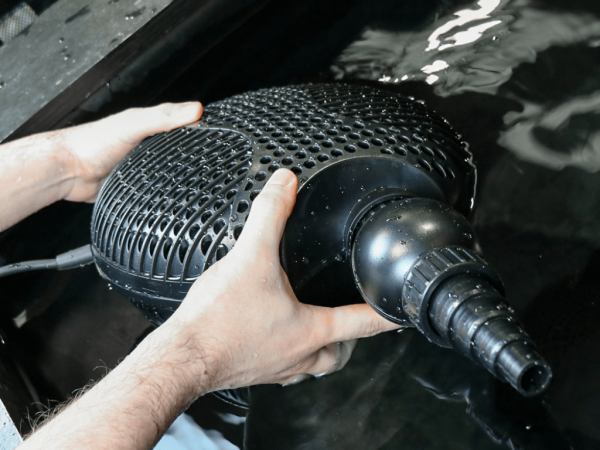Everything You Need To Know About Swell UK Pond Pumps
Whether you want to supply a pond filter with water, create an elaborate water feature, or simply aerate your pond, you’ll need a pond pump. These vital pieces of pond equipment come in a variety of models, but they all serve pretty much the same purpose: to pump water around your pond. We stock a wide range of pond pumps here at Swell UK, let's take a look at the different types and the benefits they bring to your garden pond...
What are pond pumps?
At the heart of every thriving pond there’ll be a pond pump, pumping away and supplying equipment like pond filters, pond fountains, and water features with a constant supply of water. They’re essential for maintaining a healthy pond and without them pond life would struggle to survive. Even wildlife ponds that typically don’t require a pond filter benefit from a pond pump, if only to keep pond water aerated.
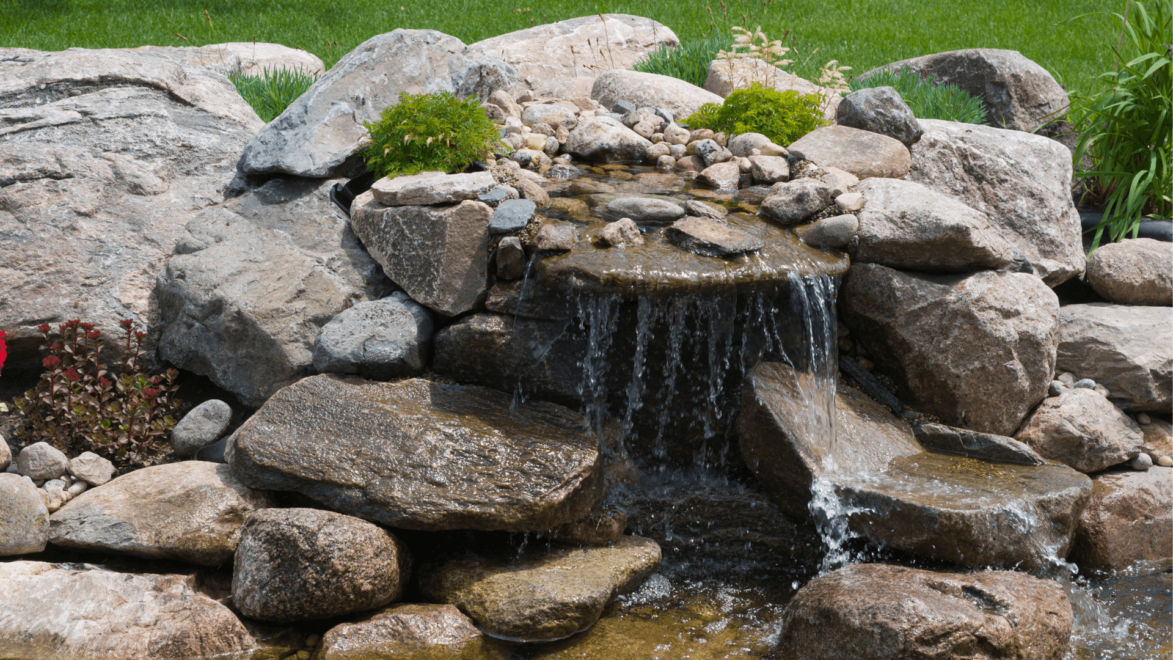
There are many different types of pond pumps; some have solids-handling capacities (more on that later), some can be ran dry (outside of your pond), and some have adjustable flow rates, making them suitable for use in a wide range of ponds. While each have their own unique strengths, and weaknesses, all will pump water around your pond.
Filter pumps
These pond pumps shouldn’t be confused with pond filters. They’re known as filter pumps and they’re designed to be partnered with a suitably sized filter unit to create an effective and efficient filtration system. Most filter pumps are submersible, like our best-selling Swell Filter Pumps, but some can be ran externally, like our Swell Variable Flow Pond Pump Premium.
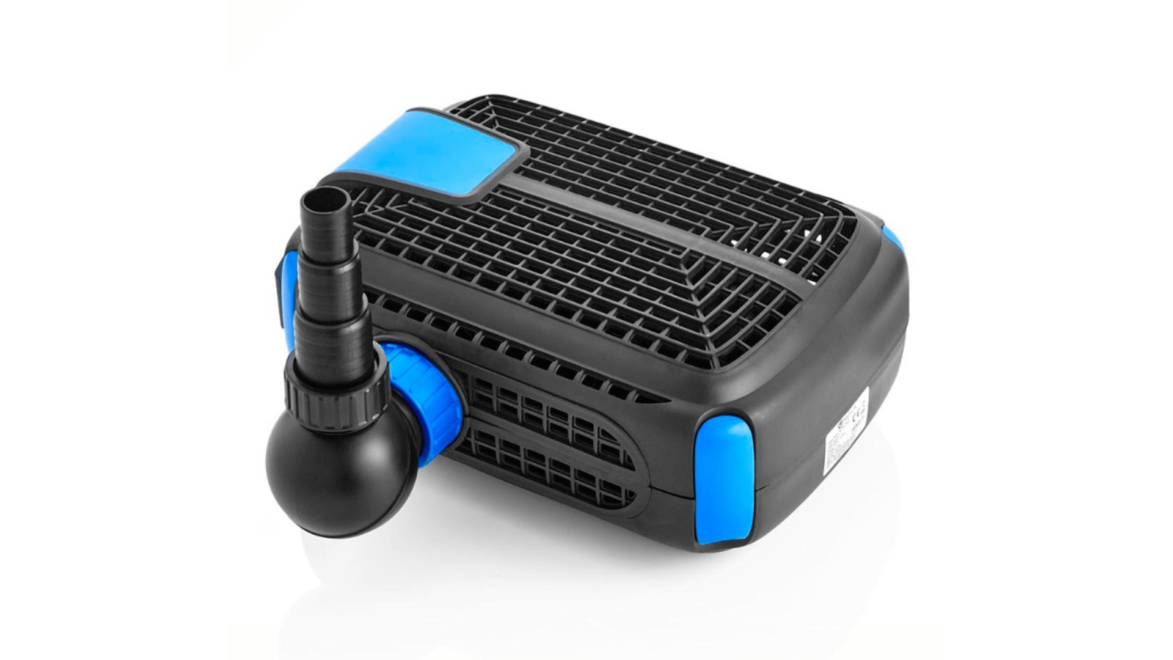
As they’re designed to work alongside filters, filter pumps are especially good at pumping waste solids. Most have large solids-handling capacities, meaning they can pump sludge, fish waste, and debris to filters without blocking. And on the rare occasion that they do block, a lot of them are fitted with thermal cut-off switches that automatically power down the pond pump to preserve its delicate internals.
Fountain pumps
The main purpose of fountain pumps is to supply pond fountains with a constant supply of pressurised pond water. These pond pumps sit on the base of your pond while their fountain attachments poke just above your pond’s surface, spraying a decorative stream of water into the air. This not only adds to the aesthetic of your pond, but also helps aerate it. As water falls onto your pond’s surface it agitates it, increasing oxygen absorption.
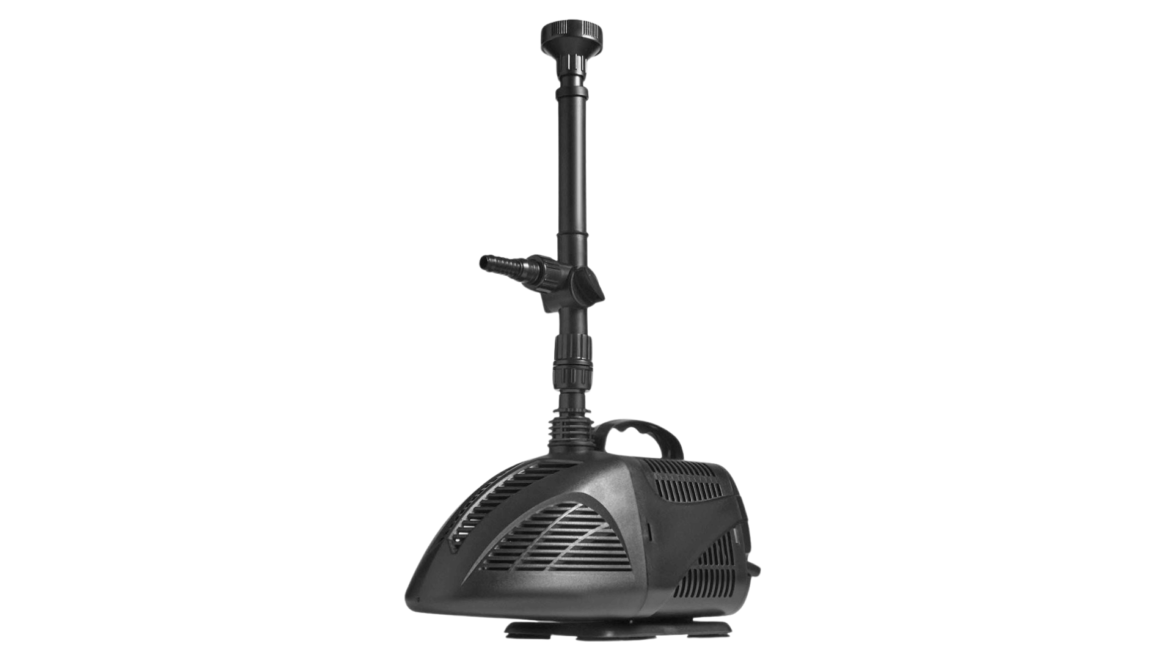
Like filter pumps, fountain pumps typically come with a lot of useful features, like energy-efficient motors, detachable strainer cages, and thermal cut-off switches. They’re not quite as good at handling abrasive solids though, making them less suitable for use with filters. If you’re looking to create an attractive fountain, however, then a fountain pump is your best bet.
Water feature pumps
These pond pumps are very similar to fountain pumps and are also designed to supply water features, like pond fountains, with a constant supply of pressurised water. While fountain pumps typically come with a built-in fountain attachment, water feature pumps often don’t. This makes them a little more versatile and a great choice if you’re looking to pump water from your pond up to a waterfall.
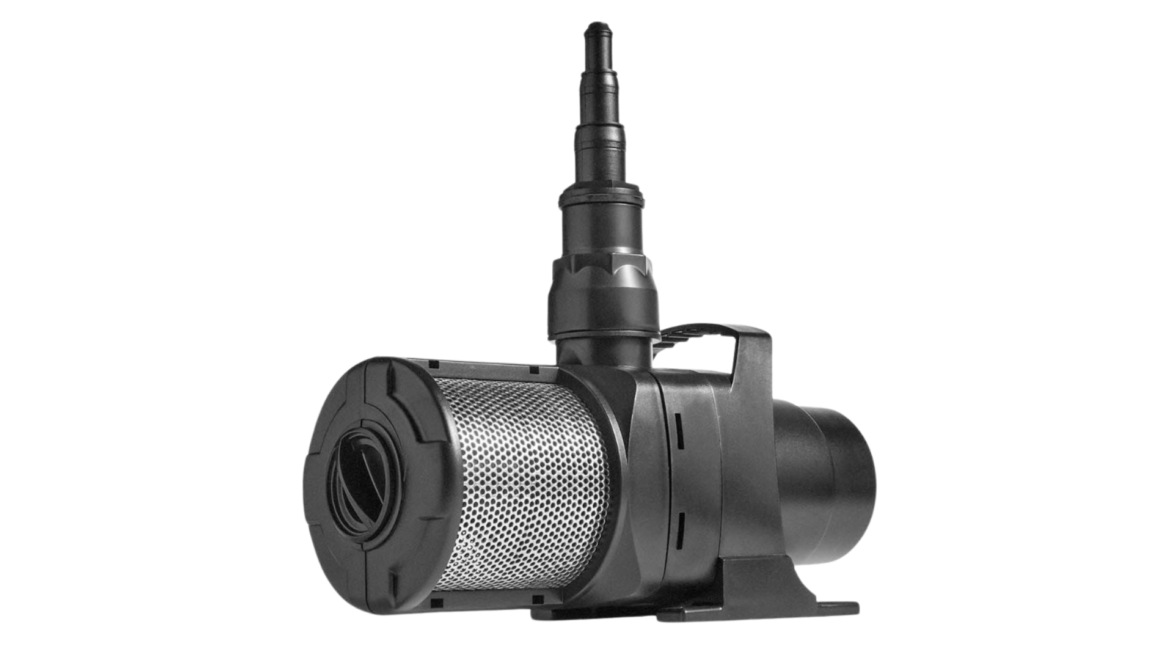
All-in-one pond pumps
These all-in-one pond pumps blur the lines between pumps and filters, combining the best aspects of both into a single, easy-to-install unit. They typically work by pumping water through some filter media before firing it out of a fountain attachment. These are very attractive pond pumps for first-time pond keepers, and those with small ponds that don’t have space for a lot of different equipment.
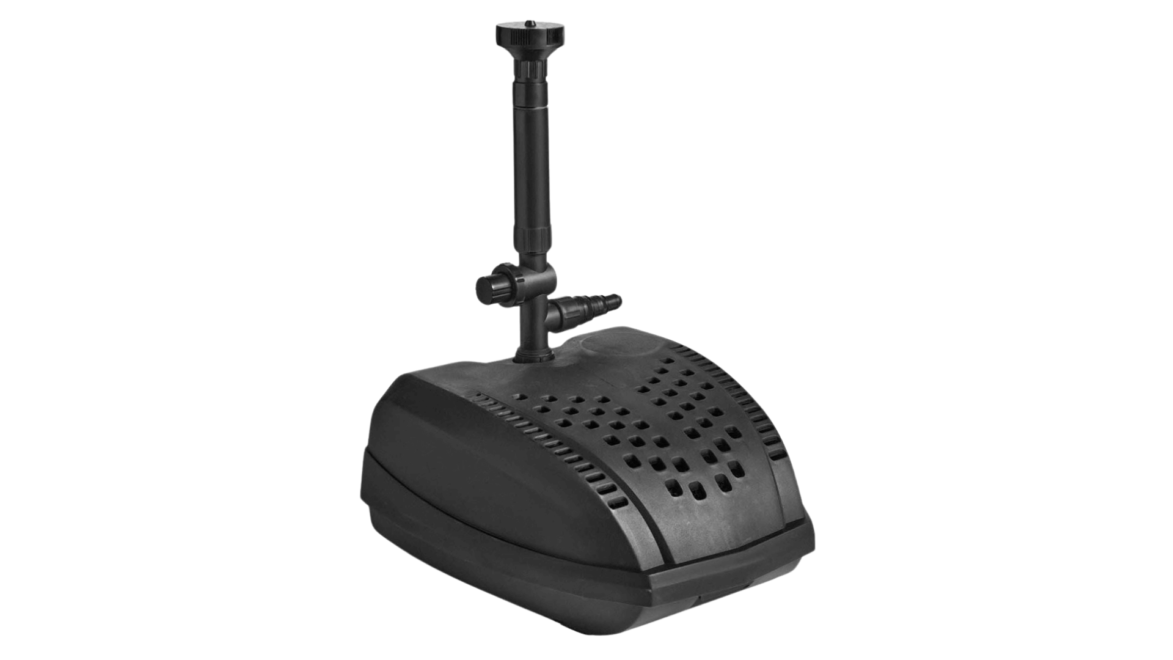
Other types of pond pumps
As well as the above, we stock a number of other types of pond pumps here at Swell UK. These include: solar-powered pond pumps, a great choice for small ponds that get a lot of sun, floating fountain pumps, a fantastic addition to ponds that need some extra aeration, and air pumps, a type of pump that pumps air rather than pond water.
What are solids-handling pond pumps?
These are pond pumps that have been designed to handle waste, like sludge, grit, and debris. A lot of pond pumps with solids-handling capacities come with strainer cages that prevent large solids (and fish) from being sucked into the pond pump. This increases the longevity of the pond pump and decreases the risk of abrasive particles wearing down the pond pump’s delicate internal components.
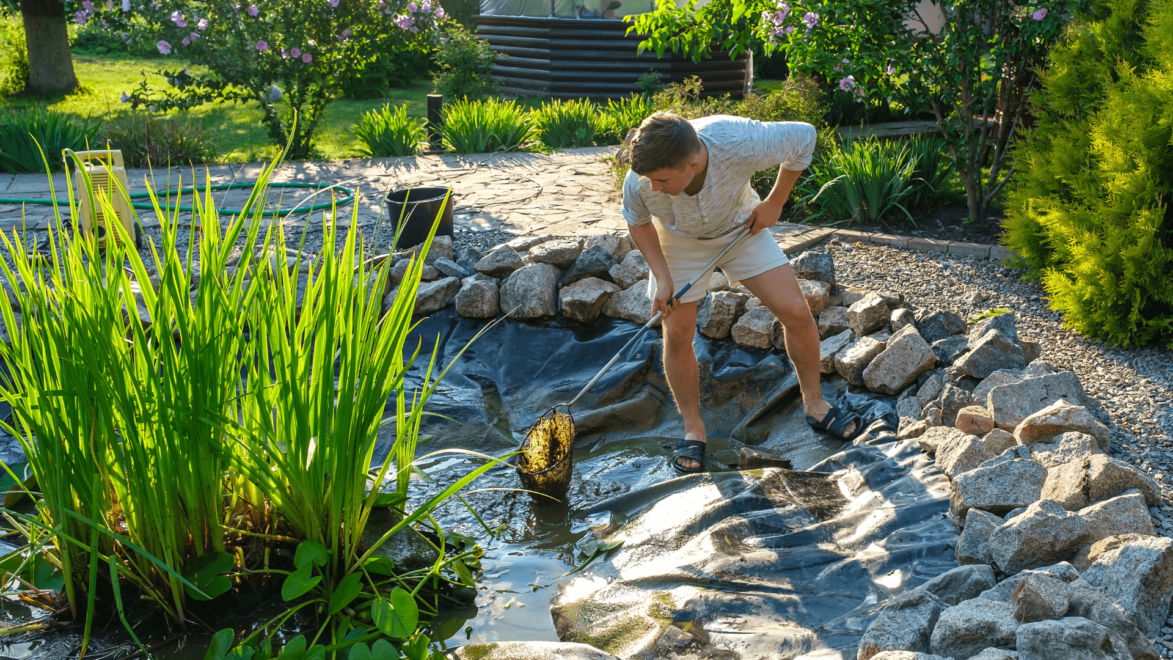
As they’re capable of pumping waste, solids-handling pond pumps ensure max flow rates year round, even during those months of the year when your pond is typically choked with muck. This is great as it keeps your water moving and your fish happy – two hallmarks of a healthy pond. On top of that, solids-handling pond pumps tend to be easy to clean and give you quick access to their impellers should they need replacing or servicing.
What’s the difference between pond pumps and pond filters?
For first-time pond keepers, it's often tough to tell the difference between a pond pump and a pond filter. In short, pond pumps supply filters with water, while filters filter excess nutrients and pollutants from your water, creating a healthy environment. When used together, pond pumps and pond filters form fantastic filter systems that, provided you stay on top of maintenance, have no trouble supporting a healthy pond full of pond life.
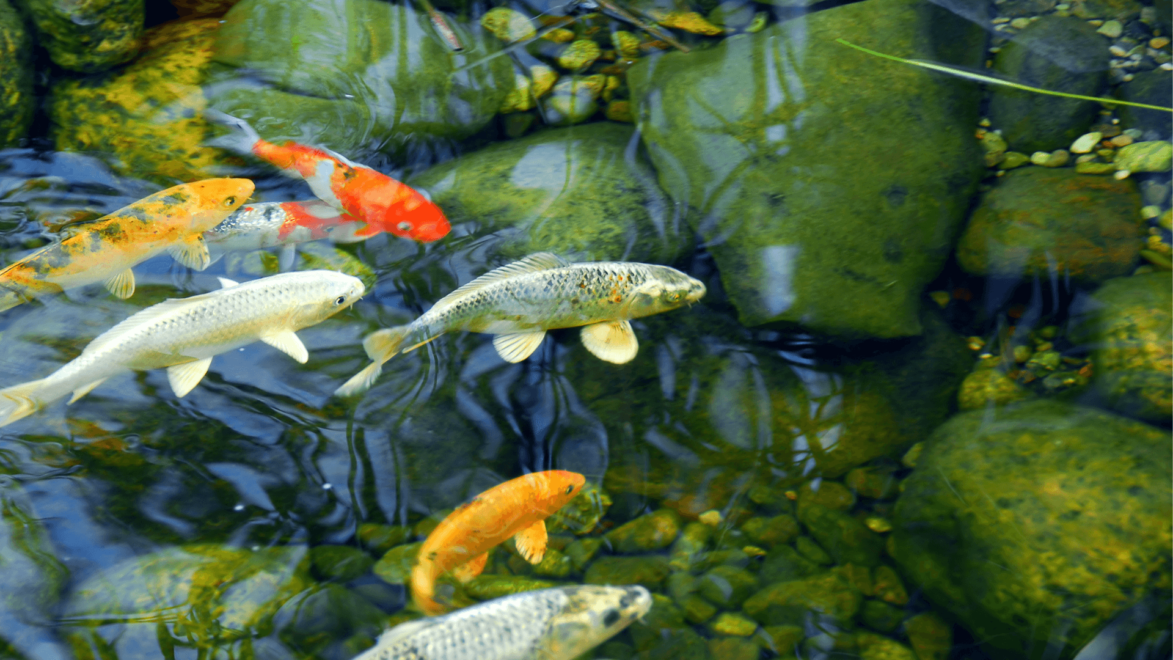
How do I choose the right pond pump for my pond?
Selecting the right pond pump for your pond is a difficult task and depends on a wide variety of different factors, including the size and volume of your pond, whether or not you keep fish, and what kind of pond equipment you’re planning to supply with water. First, identify what you want a pond pump to do – if it’s to supply a filter with water, go for a filter pump, if it’s to supply a pond fountain, go for a fountain pump, and if it’s to supply a waterfall, go for a water feature pump.
Once you’ve narrowed down your selection to the type of pond pump that you want, you’ll need to work out the most suitable size. A lot of our pond pumps come in a variety of different sizes, so no matter the size of your pond or the max flow rate requirements of your pond filter, pond fountain, or water feature, there’s a pond pump that’s perfect for your needs.
As a general rule, flow rate drops the higher and further you attempt to pump water away from your pond. This needs to be considered when selecting your pond pump. You should purchase a pond pump that meets the max flow rate of your partnering equipment at its height above pond level. As long as you select the right size and type of pond pump, maintaining a healthy pond year round will be a breeze.

For more information about how to choose the right type and size of pond pump for your pond, check out our handy help guide here.
Do pond pumps come with fitted plugs?
It’s worth noting that, as per UK regulations, our pond pumps are NOT supplied with a fitted plug. To plug them into an outlet, you’ll have to purchase a plug separately and fit it yourself, or with the help of an electrician. Our pond pumps’ impellers are also consumable parts that can, over time, wear down. These impellers are not covered by the guarantees that cover the pond pumps, though spare parts can purchased as and when required.
How do I calculate my pond’s volume?
It might seem like a daunting task, but calculating the volume of your pond isn’t too difficult once you’ve got some measurements and an equation to plug them into. Start by measuring the average length, average width, and average depth of your pond. These can be rough measurements, there’s no need to measure every nook and cranny of your pond. Then, plug your numbers into the following equation:
- Average length (m) x average width (m) x average depth (m) = your pond’s volume in cubic metres. Then, multiply the cubic metres by 1,000 to get your pond’s volume in litres.
- Example: (5 x 5 x 1) x 1,000 = 25,000L
If you haven’t got a calculator to hand then use our pond volume calculator. Just plug in your measurements, hit calculate, and the pond volume calculator will do the rest of the work for you!
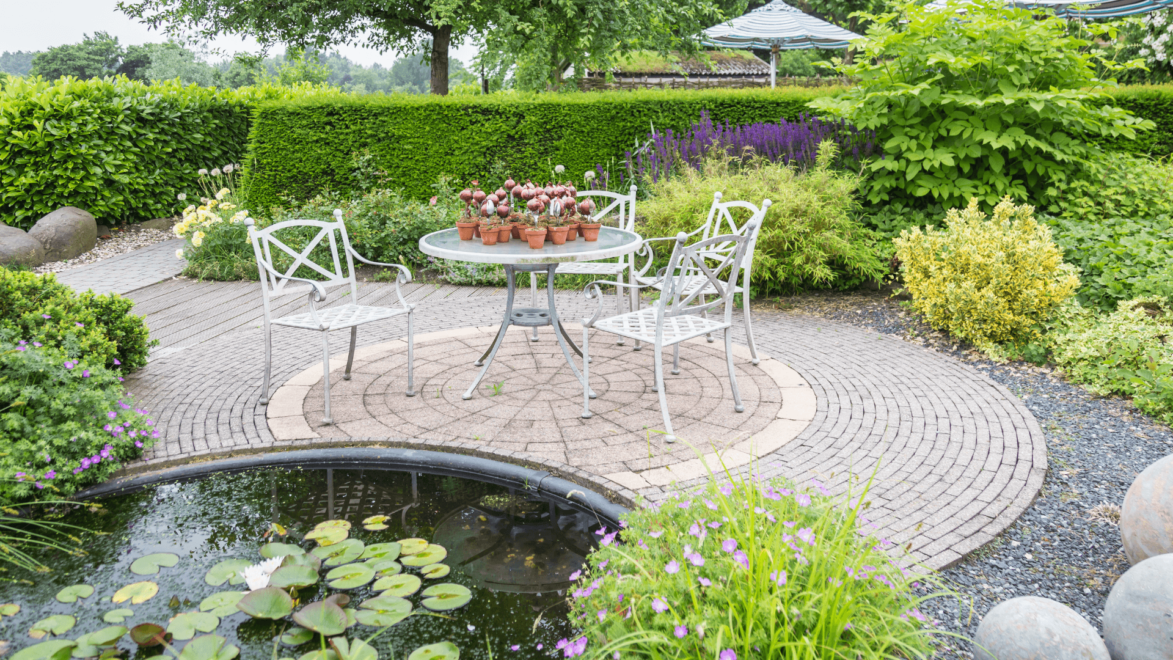
There’s a lot of information here to get you started, but for more advice and tips about pond pumps be sure to read our useful pond help guides all about pond pumps. Also, check out our range of other garden pond essentials, such as pond filters, pond liners, pond fish food, pond treatments, and pond plants.




